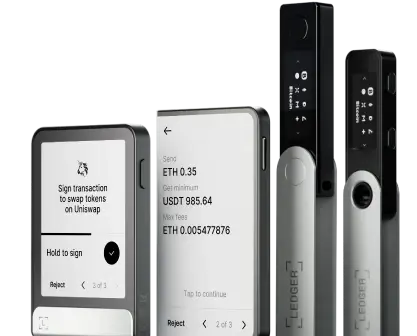Thought leadership | 07/15/2020
Spend cryptocurrencies: Why, how and where?

In the last decade has seen the development of and rapid adoption of bitcoin. Since then, there has been a dramatic increase in the amount of contexts where people can spend cryptocurrencies. Troubling economic circumstances have loomed large in many countries in recent years, fueling a desire to find alternative payment methods and new ways to preserve wealth.
Even with this growth, cryptocurrencies remain poorly understood by most people, leading to misconceptions surrounding their function, benefits, and limitations. With the balance increasingly skewed towards wider cryptocurrency adoption, now is an opportune time to learn why cryptocurrencies are rapidly gaining prominence as a new way to spend.
Common misconceptions
As it stands, a large proportion of cryptocurrency holders can be considered long-term investors. They believe in the long-term potential of the digital assets they hold and expect that they will continue to appreciate in value in the coming months and years.
However, most cryptocurrencies are not designed to be simple speculative instruments. Instead, they are built to address particular use-cases and provide holders with some utility value. For example, the majority of the most popular cryptocurrencies are designed to provide an alternative monetary system, allowing holders to make personal and business transfers, pay for goods and services, and transfer value across borders without relying on their bank or a payment processor. Removing banks from these transactions can lower entry barriers, fees and transaction times.
Despite this being the main purpose of cryptocurrencies like Bitcoin (BTC), Litecoin (LTC), Bitcoin Cash (BCH) and many more. They are often not used primarily for these purposes, partially due to relatively low adoption to date. A variety of misconceptions around how these assets are used and stored remains one of the biggest obstacles to cryptocurrency adoption. With that in mind, we will address four of the most common misconceptions below.
‘Cryptocurrencies are volatile’
While it is true that most cryptocurrencies do fluctuate in value far more than the fiat currencies we’re all accustomed to using, this volatility is generally positive for most popular digital assets. Using Bitcoin as an example, the vast majority of Bitcoin price movements have added value, rather than taken it away. Historically you’re far more likely to have profited from holding Bitcoin than have lost out, if you hold long term.
‘They’re complicated’
In the early days of cryptocurrencies, this was certainly the case, but things have come a long way since then. Now, most major cryptocurrency wallets are extremely simple to use, making sending and receiving cryptocurrencies no more difficult than using your bog-standard mobile banking app.
‘…and hard to secure’
Think of cryptocurrencies like cash. Once sent to somebody, it’s hard to get back. This is why cryptocurrencies are generally considered an irreversible payment method, so it’s wise to double-check the details of any payments before sending them out.
Because of this property, you will need to secure your wallet (like a Ledger Hardware wallet) with a strong password and take precautions to ensure only you are able to access it — just like keeping your credit cards or bank account safe.
‘You can’t spend cryptocurrencies anywhere’
As we’ll soon see, Bitcoin and many other cryptocurrencies can be spent practically anywhere, but this may require users to employ one of a variety of simple workarounds to do so.
Spend almost anywhere, but there’s a catch
As arguably the next generation of payment methods, cryptocurrencies have been widely lauded as the solution to expensive international remittance fees, payment processing charges, annoying foreign exchange rates, and the extreme delays that come with some types of money transfers.
However, all of these capabilities hinge on merchants, retailers, and service providers actually accepting cryptocurrencies in exchange for their goods or services. This remains one of the major pain points for cryptocurrency users, since only a fraction of places actually accept direct cryptocurrency payments. However, an increasing number are beginning to work with processors like BitPay, Flexa, and Stripe to accept crypto.
Fortunately, the situation is far better now than in the early years of the industry, and it’s now possible to spend cryptocurrencies practically anywhere — even places that don’t necessarily directly accept cryptocurrencies, thanks to the availability of several popular workarounds and services.
According to CoinMap, close to 20,000 merchants accept Bitcoin or other cryptocurrencies in their physical stores worldwide — these range from grocery stores to restaurants, hotels, sports venues, and more. Beyond this, a wide variety of online merchants and retailers accept Bitcoin, including the tech giant Microsoft, consumer electronics outlet Newegg, and the popular travel-booking agency, Expedia.
With that said, the number and range of cryptocurrency-accepting merchants available in your local area will typically depend on your location. Most major cities in western countries will typically have at least a few dozen places to spend Bitcoin or other cryptocurrencies, whereas more geographically isolated and less economically developed regions may have few to none.
Cryptocurrency exchange platform PayBis has produced a useful overview of well over 150 of the most popular companies that accept Bitcoin. But for those looking to spend Bitcoin or any other cryptocurrency practically anywhere, there are two primary options.
Buy gift cards
Thanks to the advent of platforms like Bitrefill and Gyft, it is now possible to purchase gift cards, vouchers and eCodes for a huge variety of stores and merchants using cryptocurrencies — effectively allowing cryptocurrency users to spend their digital assets in any store that accepts gift cards and vouchers as a payment method.
With this system, cryptocurrency users can buy gift cards for platforms like Amazon, eBay, Steam, Walmart, Best Buy, Target, Airbnb and hundreds more, which can then be spent just like any normal gift card.
Although this does add an extra step beyond shopping directly with cryptocurrencies, these gift cards are often available at a discount, which somewhat compensates for this inconvenience. They also provide a simple way to lock in the value of your cryptocurrencies, which can be useful in a down market.
Use a crypto debit card
Another popular way to effectively spend cryptocurrencies anywhere that accepts debit card payments is with the use of a crypto debit card. In essence, these are a special type of debit card that you fund using cryptocurrencies rather than fiat currencies.
Just like buying and spending gift cards using cryptocurrencies, using a crypto debit card to make in-store and online purchases is considered a workaround. These merchants don’t actually necessarily accept cryptocurrencies, the debit card provider must work some technical wizardry behind the scenes to automatically convert your cryptocurrencies to cash at the point of sale.
There is now a wide range of crypto debit cards available, many of which are offered by established crypto companies, including the likes of Coinbase, Nexo, and Crypto.com — while some even offer extra incentives, ranging from cashback, to discounts and exclusive perks.
The benefits of spending cryptocurrencies
Security and complete financial control are two of the main draws for cryptocurrency users. But, they also have several more practical benefits that are best appreciated when transacting with and spending cryptocurrencies on a regular basis.
Among these, significant efficiency improvements are perhaps the most important. By transacting with cryptocurrencies, you are able to transfer as much or as little as you want to practically anybody without relying on your bank, remittance provider, or anybody else for that matter. The payment goes directly from you to the receiver, without needing to be processed by anyone else. This is typically a much faster process, too.
Rather than taking hours, or even days, to reach the recipient, most cryptocurrency transactions are finalized within just minutes. This means you can send cryptocurrencies like Bitcoin or Litecoin to friends and family anywhere in the world. And they can spend them in less than an hour later. Achieving this with traditional currencies is usually a prohibitively expensive task, whereas cryptocurrency transaction fees typically amount to just a tiny fraction of the transferred amount — well below 1% in most cases.
As if being faster and cheaper isn’t enough, many cryptocurrencies have also appreciated in value in recent years. The purchasing power of most popular cryptocurrencies have skyrocketed, while common traditional currencies have either stagnated or reduced in value as a result of rampant inflation and counterfeiting in many countries.
So if you were looking for a new way to maximise your spending power or just take back control of your money, there are now multiple ways you can protect and spend your wealth using nothing but cryptocurrencies. Over the coming years we expect to see more and more solutions that make buying and spending cryptocurrency even easier than a regular bank account. What are you waiting for?





























